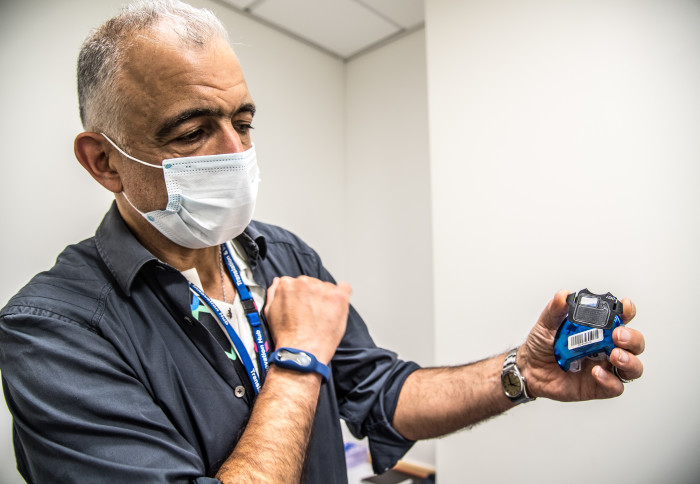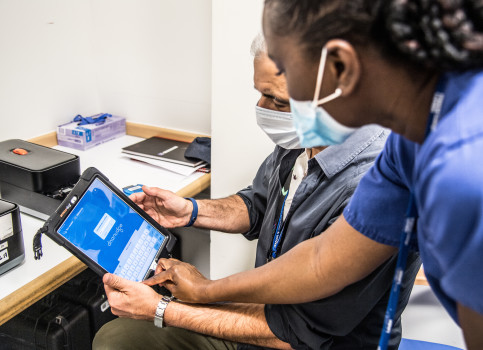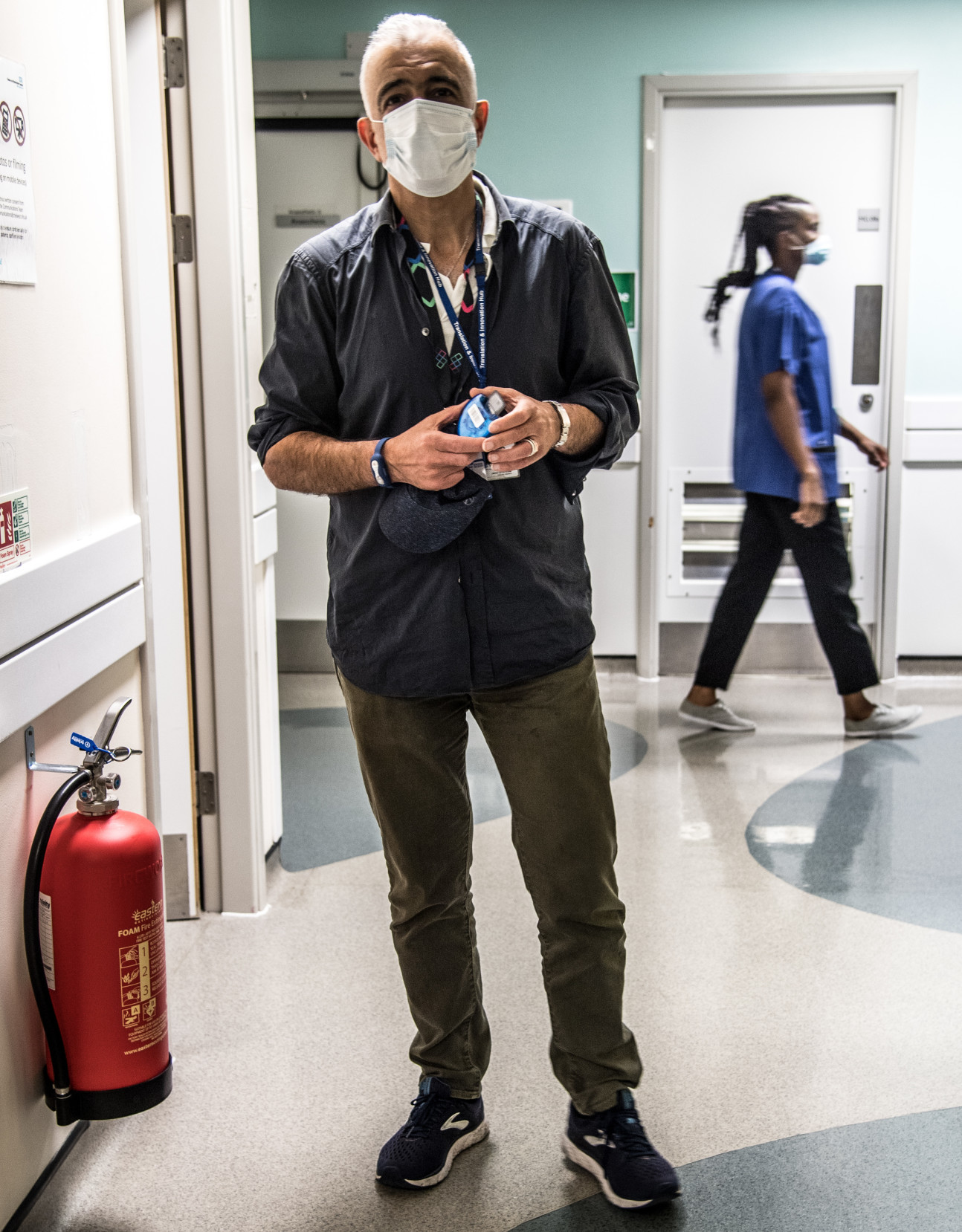Special Award for Pandemic Service goes to academic behind rapid COVID-19 test

Professor Chris Toumazou has been awarded a President's Special Award for Pandemic Service by the Royal Academy of Engineering.
The President’s Special Awards for Pandemic Service are awarded by the Royal Academy of Engineering to recognise exceptional examples of engineering in the service of society during the pandemic. Nineteen individuals and teams of engineers from across the UK will receive specially commissioned silver medals for their contribution.
Identifying people with COVID-19, especially if they are asymptomatic, has been a major challenge of the pandemic. Imperial College London’s Regius Professor of Engineering Chris Toumazou engineered a lab-free COVID-19 test that provides results in under 90 minutes and is already being used on the frontline in a number of NHS hospitals in London.

Engineering innovations
DnaNudge, an Imperial startup headquartered in White City and co-founded by Professor Toumazou, recently obtained a CE mark for its COVID Nudge test, enabling its additional use in non-clinical locations, including care homes and other public emergency services.
The COVID Nudge test adapts DnaNudge’s consumer service, which was launched last year to analyse and map users’ genetic profile to key nutrition-related health traits such as obesity, diabetes, hypertension and cholesterol, enabling customers to be “nudged” by their DNA towards healthier eating.
Lab-based polymerase chain reaction (PCR) tests can take up to 72 hours, but Professor Toumazou’s portable, lab-free PCR test can return results in just over an hour, as well as differentiate between an imperfect sample and an absence of the disease, eliminating false negatives. The ‘lab-in-cartridge’ technology is a direct swab to result, without any laboratory steps involved.
Major contributor
Successfully testing people who may have COVID-19 has been an enormous challenge, but Professor Toumazou’s quick work meant the life-saving technology could be deployed in hospitals across London and Oxford when it was most needed.
 Following approval from the Medicines and Healthcare Products Regulatory Agency (MHRA) for widespread clinical use, testing kits were supplied to A&E, maternity units and cancer wards at eight hospitals in London, ahead of a wider roll-out.
Following approval from the Medicines and Healthcare Products Regulatory Agency (MHRA) for widespread clinical use, testing kits were supplied to A&E, maternity units and cancer wards at eight hospitals in London, ahead of a wider roll-out.
The technology is believed to be a major contributor to the UK’s recovery and has been described as a key COVID testing technology by the UK government, who recently placed a £161 million order for 5.8 million test kits to be used in NHS hospitals from September.
“Remarkable achievement”
Sir Richard Sykes HonFREng FRS FMedSci, Chair of The Royal Institution of Great Britain and Chair of Trustees at King Edward VII’s Hospital in London, says: “Once the call went out from Government calling for support for testing facilities for COVID-19, Chris and his team set to work immediately, adapting his technology to detect the virus. This test has now been CE marked and is now in widespread clinical use. In my opinion this has been a remarkable achievement.”
The Royal Academy of Engineering (RAEng) is the UK's national academy of engineering that harnesses the power of engineering to build a sustainable society and an inclusive economy that works for everyone.
Image credits: Jude Palmer/Royal Academy of Engineering
Article text (excluding photos or graphics) © Imperial College London.
Photos and graphics subject to third party copyright used with permission or © Imperial College London.
Reporter
Joanna Wilson
Communications Division